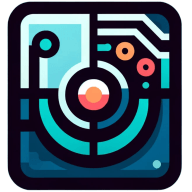4 Thoughts On Low-Code and No-Code Platforms and their Future Impact
The world of software development is undergoing a significant transformation with the rise of low-code and no-code platforms. These innovative tools are reshaping how businesses approach application development, empowering non-technical teams and shifting the focus of professional developers. Drawing on insights from industry experts, this article explores the impact of these platforms on the software development landscape and the evolving role of experienced programmers in an increasingly AI-driven coding environment.
- Low-Code Platforms Empower Non-Technical Teams
- Shifting Developer Focus to High-Value Work
- AI-Generated Code Requires Experienced Programmer Oversight
- Abstraction Layers Evolve Software Development Landscape
Low-Code Platforms Empower Non-Technical Teams
I think the fact that more and more people are using low-code and no-code systems is great because it means more people can now make software. These solutions make it easy for non-technical people to build and improve digital solutions. They also help remove bottlenecks and speed up testing. These are helpful for businesses because it lets the marketing, operations, and product teams fix issues on their own, without having to wait for coders to do it.
Still, I don't think they'll soon be able to replace traditional computer languages. To work on complicated systems, custom interfaces, and scalable structures, you still need skilled developers and engineers. Developers will only have to change how they spend their time. They won't start from scratch anymore to make interfaces or automate simple tasks. Instead, they can focus on making parts that can be used repetitively, APIs, and governing layers that let everyone in the company use low-code in a way that is safe and scalable.
A mixed setting is most likely what the future holds. Prototypes, internal tools, and MVPs will be taken care of by low-code platforms. On the other hand, traditional development will keep core infrastructure and new ideas going. You should know when to use each one and what the trade-offs are in terms of upkeep, flexibility, and performance. These tools can help you get things done faster without sacrificing quality if you know how to use them right.

Shifting Developer Focus to High-Value Work
I believe low-code and no-code platforms are game-changers—not because they replace developers, but because they empower non-technical teams to build what they need faster, without waiting in the IT queue. At Diamond IT, we had a client who used a no-code tool to create a custom intake form for their HR team. Previously, they were passing around Excel sheets via email. Once they built the form, it fed directly into a secure workflow we helped them design. It wasn't flashy, but it solved a pain point and freed up our team to focus on more complex systems work.
What these platforms are doing is shifting where developers spend their time. Instead of writing every line of code for internal tools, we're now spending more time securing integrations, setting governance, and ensuring that what gets built integrates smoothly with the rest of the environment. Low-code won't eliminate programming, but it will change what "development" looks like for many internal business applications. Honestly, that's a positive change—it pushes skilled developers toward high-value work and enables business users to solve problems more quickly.

AI-Generated Code Requires Experienced Programmer Oversight
Low-code and no-code platforms have been around for quite a while. In fact, back in the late 1990s, tools like Delphi already offered a low-code experience: you could place UI elements on a form, write a few dozen lines of code, and end up with a fully functional application. I first encountered the idea of component-based development when I started university in 1998. This model is still relevant - solutions are assembled from reliable, well-tested building blocks. Overall, low-code and no-code approaches pose little risk to the software industry. They're mainly suited for rapid prototyping and internal business tools, where speed and simplicity are more important than fine control.
However, the growing trend of "vibe coding" is a much more disruptive evolution. It gives the illusion that anyone can write working code simply by prompting an AI, testing the result, and refining the prompt. While this workflow feels powerful, it can be dangerous in unskilled hands. Many users don't understand the code that AI generates, and can't assess its correctness or security. This has already led to a number of incidents - some amusing, others concerning - for experienced developers observing from the sidelines.
In my view, "vibe coding" should be used by experienced programmers. The role of a modern developer is changing: it's no longer just about mastering the syntax of a language. Instead, it's about being able to decompose complex problems, read and evaluate unfamiliar code, and recognize security pitfalls. Without those skills, AI-generated code can introduce subtle bugs or serious vulnerabilities.

Abstraction Layers Evolve Software Development Landscape
Abstraction holds a special place in the world of technology. Programming was once so close to the metal, and now we program layers away using interpreted languages like Python. Messy server rooms are now hidden behind the cloud. I think low-code/no-code solutions will have a similar impact as another layer of abstraction, which lowers the barrier of entry, leading to wider adoption and popularity.
I believe that programming languages continue to layer in more abstractions to lure developers, and software development continues to demand more and more speed (I am deliberately not calling it velocity).
However, as we have seen with every evolution listed above, defaults become stale, and engineers start looking under the hood, desperately needing customization. That is how languages like Rust and Go were created specifically to peel layers off for faster execution with less memory consumption.
Technologists with fundamental knowledge continue to thrive as experts who navigate between abstractions and clarity as it fits the purpose while maintaining velocity.


